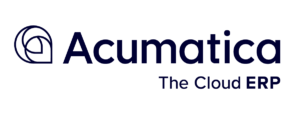Your ERP cost will vary depending on many factors, including your vendor’s licensing policies, the number of users, monthly transaction numbers, the industry you’re in, hardware if you’re not choosing a cloud solution, data conversion services, customizations and integrations needed, testing, training, and post-implementation support.
Why businesses upgrade ERP systems?
Over 30% of businesses were implementing an ERP to support their company’s growth. 20% of businesses reported they were looking to gain functionality and increase efficiency. What’s your reason for upgrading your ERP solution?
Cost of a new ERP system
Changing your financial and business management software represents a significant investment of time and money. But how much? That is a tough question to answer as it depends on what your business needs. Besides license costs, you need to factor in implementation, training, and ongoing support.
In total, some people use the rule of thumb to estimate around 1.5 to 2.5 times the base cost of the software for implementation services. Other research says to expect to spend about $9,000 on each user of the system over a five-year period. However, there are many factors to take into consideration of your unique business needs which will affect the price.
Here is a list of the common pricing variables:
Licensing & Hosting

97% of companies are considering a cloud-based ERP solution because of the great number of benefits for SMBs.
Hosting your ERP solution in the cloud reduces your costs:
- None of the upfront costs for infrastructure such as hardware and servers.
- Fewer IT support services are needed in-house because IT support is provided by the data center.
- Pay for licenses split up over every month versus a large upfront cost.
- Fewer hassles as updates and upgrades are handled by the cloud provider.
The most important benefits of cloud ERP go beyond cost-savings and include:
- Pay only for the resources you need and easily scale up and down as your business fluctuates.
- A fixed monthly rate so companies can use their cash on other business initiatives.
- Access from anywhere, anytime, and on any device.
- Backups and disaster recovery and handled by the cloud provider.
- Get best-in-class security protection for your data.
Users / Monthly Usage
There generally are two types of pricing. There is usually a base software cost, and many systems will also charge a per user fee. Licenses are either given to specific usernames that can only access one system at a time (named users) or by the total number of users that can access the system at the same time (concurrent users). Other systems, like Acumatica, charge a monthly rate based on the number of transactions regardless of the number of users.
Industry

Integrations & Customizations
Every business is unique and sometimes you need a unique integration or customization for your system. Make sure to take a close look at how the ERP solution handles those situations first. Can you adjust your process to fit? If not, make sure to include in cost estimate time for development and testing.
Additional Products
Independent software vendors (ISV) have developed many great add-ons for ERP systems to fill the gaps. Some of these might work great for your business, instead of a custom solution. Extensions like credit card processing, EDI compliance, sales tax automation, and marketing automation. Include these costs in your estimate too.
Where do I start?
First, download our free guide for businesses considering an ERP replacement and looking to justify the investment in new technology. In this guide, we provide methods to identify and define the full spectrum of costs and benefits associated with an ERP implementation, as well as the calculations needed to determine a true return on investment analysis.
Second, call WAC Solution Partners. We offer discovery sessions and dig deep into your business, so all your needs are accounted for. Contact us today 866-901-9955, let’s talk ERP.


